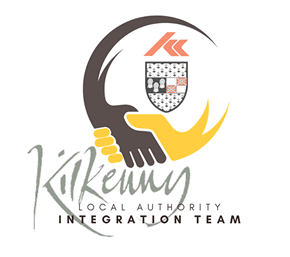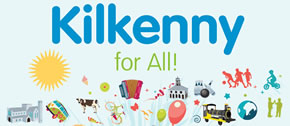
Telephone: +353 56 7794419
Email: mailto:integration@kilkennycoco.ie
The International Protection begins when you enter the country and claim asylum. It can be a lengthy process.
Please see The Irish Refugee Council’s Information Hub for videos in various languages on the process - Information on Ireland's international protection system
The main steps involved in the International Protection Process are:
In 2023, the average waiting time for a decision was 13 months (from questionnaire completion to initial decision). Accelerated cases are reduced to 8 weeks.
In 2023, the average waiting time to receive a decision from IPAT for appeals was 5.5 months.
All asylum seekers are entitled to free legal aid throughout the asylum process. You must make an application to the legal aid board to avail of this. You should do this as soon as possible, after you have submitted your claim for asylum (complete the form and post to your local legal aid office).
You should expect to wait 3-4 weeks to be assigned a solicitor for your case. The name will be emailed to the email address you provided on your application form.
You can request to change your solicitor if you are unhappy with them. You should write to legal aid board explaining why you are unhappy. The board may of may not agree to change your solicitor. This can be a lengthy process.
Once you receive your ministerial letter confirming your status type, you need to make an appointment with your local GNIB office. After this appointment, you will usually receive your Irish Residence Permit after 1-2 weeks.
You no longer need your Temporary Residence Permit (blue card).
You no longer need a work permit to work in Ireland. Your IRP gives you a stamp four which allows you to work.
You are now entitled to full social welfare benefits. You can apply for relevant social welfare payments online at https://services.mywelfare.ie/ or at your local Intreo office.
If you were granted refugee or subsidiary protection status, you are entitled to apply for Family Reunification. You are not entitled to FRU if you have been granted permission to remain.
If you were granted refugee status, you are entitled to apply for a travel document. If you were granted subsidiary protection, you may be entitled to a travel document (you must demonstrate that you were unable to obtain your own national passport). You are not entitled to apply for a travel document if you were granted permission to remain.
If you were granted refugee status, you can apply for citizenship 3 years after your arrival date in Ireland. If you were granted subsidiary protection or permission to remain, you can apply for citizenship 5 years after the date you were granted permission.
Once you have leave to remain, refugee or subsidiary protection status, you can apply for social housing. Whether you are entitled or not will depend on your income. In Kilkenny, a single person must be earning less than 35,000 euro per year to be entitled to social housing.
If you are approved for social housing, your name will be added to the social housing list and you will become eligible for HAP. It is your responsibility to source private rented accommodation. You will complete section A and the landlord of the accommodation will complete section B. The Housing department in Kilkenny County Council will then pay a fraction of the rent directly to the landlord.
It is vitally important that you start looking for private rented accommodation straight away once you receive your ministerial letter. IPAS are not obliged to accommodate anyone with refugee status, subsidiary protection or permission to remain. They currently allow those with permission to stay in IPAS accommodation for 8 months. After this 8 months, they will issue an eviction letter.
There is a dedicated support worker in DePaul for those leaving IPAS accommodation. Contact resettlement@depaulcharity.net for support with leaving IPAS.
People who had to flee Ukraine due to the invasion by Russia are eligible for temporary protection, initially granted for one year and renewable thereafter. They are referred to as Beneficiaries of Temporary Protection (BoTP).
From 5 June 2024 all Ukrainians who are travelling to Ireland must be in possession of a valid passport.
On arrival in the state, or shortly thereafter you will be provided with a letter from the Minister for Justice confirming that you are a Beneficiary of Temporary Protection in Ireland granted under section 60 of the International Protection Act 2015. This is all the proof you need to be able to immediately access employment, income support, accommodation (if needed) and other State supports in Ireland. If you are granted temporary protection in Ireland you will also receive a Personal Public Service Number (PPSN).
You can find detailed information on what you should do when you arrive in Ireland at the official website https://www.gov.ie/en/publication/c8e83-arriving-in-ireland/
The status of Beneficiary of Temporary protection allows you to reside in Ireland legally and access certain rights and services:
Getting PPS number:
Information on income support for BoTP
Child Benefit is a monthly payment to all parents or guardians of children under 16, or under 19 if the child is in full-time education or has a disability.
https://services.mywelfare.ie/en/topics/parents-children-family/child-benefit/
BoTPs are eligible to apply for both community work placement scheme Tús and Community Employment (CE) schemes.
https://www.gov.ie/en/service/412714-community-employment-programme/
The Back to Work Enterprise Allowance (BTWEA) scheme encourages and supports people getting certain social welfare payments to become self-employed. If you take part in the BTWEA scheme you can keep a reducing percentage of your social welfare payment for up to 2 years. BTWEA is a payment made by the Department of Social Protection (DSP) to people aged under 66.
https://www.gov.ie/en/service/f215a4-back-to-work-enterprise-allowance/
Information on state-provided accommodation, including policies on absenteeism, refusals, pets policy, FAQs etc
ARP is a tax-free payment of €800 per month for each property used to provide accommodation to refugees from Ukraine. You can find complete and detailed information here:
https://www.helpingirishhosts.com/understanding-arp
You may also be entitled to rent supplement, which is also a social welfare support website
The Regional Education and Language Teams (REALT) were set up to build on existing regional education support structures and to assisting families in securing school places:
https://www.etbi.ie/regional-education-and-language-teams-for-ukraine/
https://library.etbi.ie/realt/home
Ukrainian nationals are able to get the same health services as people who are already living un Ireland, including Irish citizens.
Medical cards may be issued, providing free or reduced-cost healthcare
https://www2.hse.ie/services/schemes-allowances/medical-cards/applying/apply/
The permission letter you will receive from the Department of Justice confirming that you have been granted Temporary Protection under the EU Directive is all the proof you need to be able to immediately access State supports in Ireland.
The Irish authorities will also register your immigration permission and give you an Irish Residence Permit (IRP) card.
Those, who were not registered on their arrival and yet to receive an Irish Residence Permit (IRP) card should email tpregistration@justice.ie and one of the Team will be in touch to make the necessary arrangements for you to attend Citywest for registration.
Various organisations and community groups provide integration services, and cultural orientation programmes to help BoTPs adapt to life in Ireland - for example:
Information for people with special needs and unaccompanied children under age 18 years - please go to www.hse.ie
In the case of supports for unaccompanied children under age 18 years who are seeking temporary protection, they will be referred to the Child and Family Agency (TUSLA), who can provide them with the relevant supports. See : https://www.tusla.ie/services/alternative-care/separated-children/
This service operates from 9am and 5pm and can be reached on +353 1 647 7000.
The Emergency Out Of Hours National number is 0818 776 315.
Renewal of Status
In June 2024 The Council of European Union adopted a decision to extend Temporary Protection Directive until March 2026. Official information about extension of Temporary protection in Ireland and renewing registration for BoTPs is here:
Change of status:
While a person entitled to temporary protection can apply for international protection at any time, it is not possible for temporary protection to be availed of while an application for international protection has been made. An application for international protection would have to be withdrawn before temporary protection could be granted or vice versa.
A person who applies for international protection will not have immediate access to employment, social welfare, ARP, or international travel in the same way as a person receiving temporary protection will.

Telephone: +353 56 7794419
Email: mailto:integration@kilkennycoco.ie
